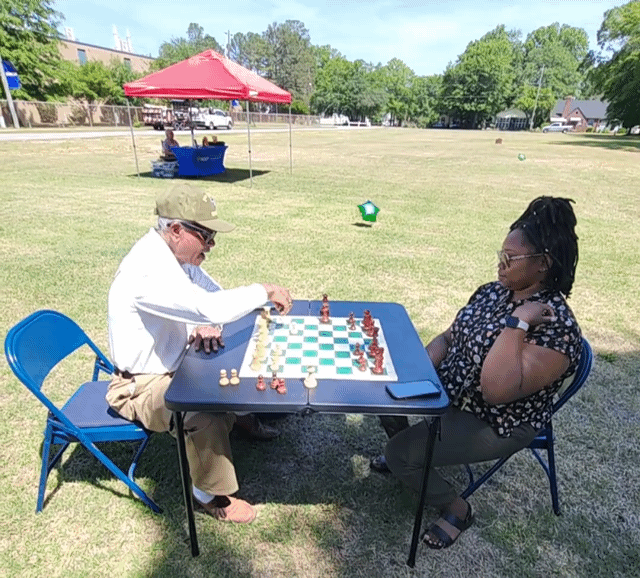Mental Health Matters
Mental Health Awareness Month began in the United States in 1949 (76 years ago) and was started by Mental Health America (MHA) (then known as the National Association for Mental Health). Each year in mid-March Mental Health America releases a toolkit of materials to guide preparation for outreach activities during Mental Health Awareness Month. During the month of May, MHA, its affiliates, and other organizations interested in mental health conduct a number of activities which are based on a different theme each year.
I’m a me mental health clinician at Santee Wateree Mental Health Clinic. The program i work for is Roads Of Independence. ROI helps build the bridge for youth and young adults to receive support for a successful transition to adulthood through engagement and providing access to mental health service
Our goal is for young adults to receive responsive age, developmentally appropriate, youth-driven, culturally competent, and highly individualized care, which will lead to a full and productive life.
ROI will reach out to young adults with emerging mental health conditions who fail to engage in treatment, and by doing so, will reduce the risk for many conditions that could result in academic underachievement, unemployment, and a loss of social supports
Don't hesitate to contact us. Even if you just need someone to talk to about life issues, we can help!
Email: Scroi@scdmh.org
Phone: 803-934-4395
Fax: 803-418-5185
24/7 Crisis Text Line
Text HOPE4SC to 741741
Mental health challenges can significantly affect daily life, relationships, physical health, and academic performance, according to Polaris Teen Center.
A significant number of teens experience mental health challenges, with anxiety and depression being among the most prevalent conditions. Roughly 20% of adolescents have a diagnosed mental or behavioral health condition, and this prevalence has increased in recent years, according to the National Institutes of Health (NIH). Early identification and support are crucial for teens struggling with mental health, as untreated issues can impact academic performance, social development, and overall well-being, according to Harvard Health.
Many people also experience stigma, discrimination and violations of human rights.
Anxiety Disorders. ...
Depression. ...
Bipolar Disorder. ...
Post-Traumatic Stress Disorder (PTSD) ...
Schizophrenia. ...
Eating Disorders. ...
Disruptive behaviour and dissocial disorders. ...
Neurodevelopmental disorders
Breaking the stigma around mental health involves open communication, education, and challenging negative stereotypes. It's about normalizing conversations, sharing personal experiences, and advocating for respectful language and understanding. By fostering empathy and creating a culture of acceptance, we can empower individuals to seek help and support without fear of judgment.
1. Talk to a Primary Care Provider:
Your primary care doctor can assess your symptoms, recommend treatment options, and refer you to specialists if needed.
Many primary care settings now routinely screen for mental health concerns.
2. Seek Support from Mental Health Professionals:
Medical doctors who diagnose and treat mental illnesses, often prescribing medication.
Offer therapy and counseling to help individuals develop coping strategies.
Provide therapy and counseling, often specializing in specific areas.
Offer support and assistance with social and emotional issues, connecting individuals with resources.
3. Utilize Support Groups and Online Resources:
Offer a safe and confidential space to share experiences and connect with others who understand.
Websites like SAMHSA and FindTreatment.gov provide information, directories, and treatment locator tools.
4. Crisis and Warmline Support:
Offer immediate support for those in crisis or distress. Call 988 or visit 988lifeline.org for the Suicide and Crisis Lifeline.
Provide a listening ear and support for those who are not in a crisis but need to talk to someone.
5. Explore Other Options:
Religious or spiritual leaders: May offer support and guidance.
Family services agencies: Offer counseling, support groups, and resources for families.
Insurance companies: Can provide information about covered mental health providers.
State and county agencies: May offer mental health services and resources.
Universities and colleges: May offer counseling services and support groups for students.
My final thoughts I will leave with you is to pay attention to your emotions, body and feelings. If you feel yourself spiraling, having lack of motivation don’t isolate yourself instead find someone to talk to. Make self care, exercising a daily routine. I encourage you to praise yourself often, celebrate small and big accomplishments, do positive self talk, engage in a hobby and journal. Always remember a small step is better than no step at all. Hopefully this blog was helpful. Feel free to share your thoughts about this topic. While you're here check out the other stories on the site.









